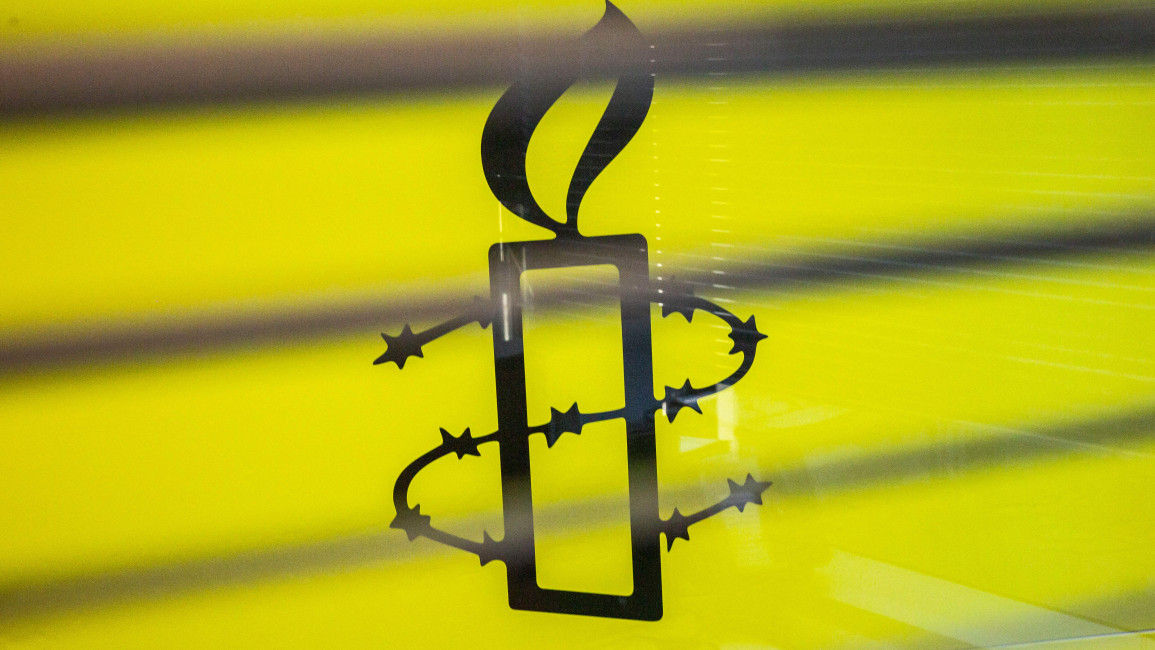Amnesty International calls out Algeria for prosecuting religious minority group
Algerian authorities should immediately drop all charges against members of the Ahmadi Religion of Peace and Light minority group, Amnesty International said Monday.
Eighteen members of the Ahmadi group face trial at the first instance court on Tuesday, for "participating in an unauthorised group" and "denigrating Islam".
Three members of them continue to be held in detention despite their lawyers appealing for their release on three separate occasions.
The court has rejected the lawyers' requests as the investigation is still ongoing.
"It is a travesty of justice that these individuals are being detained or prosecuted over their religious beliefs," wrote Amna Guellali, Amnesty International's Deputy Regional Director for the Middle East and North Africa, in the rights group report.
The Ahmadi Religion of Peace and Light was established in 1993. The religious group, which has around 70 active members in Algeria, follows the teachings of Imam Mahdi and venerates Imam Ahmed al-Hassan as its divine guide.
Ninety-nine per cent of Algeria's population (amounting to around 43 million) are Sunni Muslims following the Maliki school. Other religious groups together constitute less than 1 per cent of the population including Christians, Jews, Ahmadi Muslims, Shia Muslims, and a community of Ibadi Muslims residing principally in the Province of Ghardaia, northern-central of Algeria.
Under the International Covenant on Civil and Political Rights, which Algeria has ratified, governments must ensure the right to freedom of religion, thought, and conscience of everyone under their jurisdiction, namely religious minorities.
However, Algerian officials have repressed the Ahmadis on more than one occasion.
In 2006, Algeria passed Decree 06-03 which introduced restrictions on the exercise of religions other than Islam.
Between 2017 and 2022, Algerian authorities used both this Decree and the country's Penal Code to prosecute hundreds of non-Sunni believers and to close several Protestant churches.
In fact, Algerians can face prison terms of up to five years for blasphemy under Article 144 Section 2 of the Criminal Code and article 77 of the Information Code of 1990. Article 26 of the Criminal Code furthermore censors content "contrary to Islamic morals" as determined by the government.
In 2017, Ahmed Ouyahia, then-chief of the cabinet to President Abdelaziz Bouteflika, said that "there are no human rights or freedom of religion" in the matter of the Ahmadis, because "Algeria has been a Muslim country for 14 centuries." He called on Algerians to "protect the country from the Shia and Ahmadiyya sects."
Algeria's new Constitution, adopted in November 2020, dropped freedom of religion and belief from the Rights and freedoms chapter, and only upheld "freedom to practice religion" while stating that it "must be exercised in respect of the law."


![Hundreds demonstrate against the White House Correspondents' Dinner in support of Gazan journalists. [Brooke Anderson/TNA]](/sites/default/files/styles/image_330x185/public/2024-04/5cde0bce-4652-4e28-a001-f06b9b8f8e28.jpg?h=ddb1ad0c&itok=R_uaRAn7)
